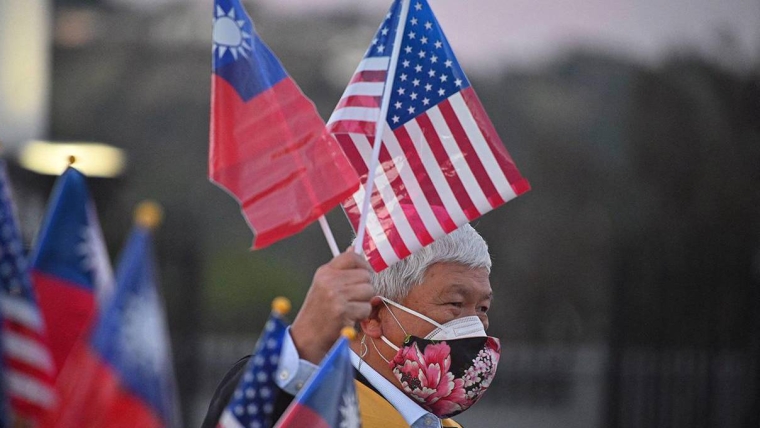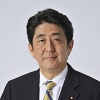
Russia’s invasion of Ukraine has reminded many people of the fraught relationship between China and Taiwan. But while there are three similarities between the situation in Ukraine and Taiwan, there are also significant differences.
The first similarity is that there is a very large military power gap between Taiwan and China, just as there was between Ukraine and Russia. Moreover, that gap is growing larger every year.
Second, neither Ukraine nor Taiwan has formal military allies. Both countries are forced to confront threats or attacks alone.
Third, because both Russia and China are permanent, veto-wielding members of the United Nations Security Council, the UN’s mediation function cannot be relied upon for conflicts in which they are involved. This has been the case with the current Russian attack on Ukraine, and it would also be the case in any crisis over Taiwan.
But the situation surrounding Taiwan is even more uneasy. While Taiwan has no allies, it does have the Taiwan Relations Act, a 1979 US law requiring the United States to provide Taiwan with the military equipment and supplies “necessary to enable Taiwan to maintain a sufficient self-defense capacity.” This law has functioned as a form of compensation for America’s unwillingness to say explicitly that it will “defend Taiwan” should it be attacked. This arrangement should now change.
In response to Russia’s aggression against Ukraine, the US stated early on that it would not deploy its troops in Ukraine’s defense. But when it comes to Taiwan, the US has adopted a policy of strategic ambiguity. This is the second point of difference: it remains unclear whether the US would intervene by force in a crisis involving Taiwan.
Because the US prefers to leave undefined its position on how it would respond to an assault on Taiwan, China has (at least up to now) been discouraged from military adventurism. This is so because China’s rulers must account for the possibility that the US would indeed intervene militarily. At the same time, US ambiguity has forced Taiwan to consider the possibility that the US will not intervene militarily, and this has deterred radical pro-independence groups on the island.
The US has maintained its Janus-faced policy for decades. But the third, most important difference between Ukraine and Taiwan suggests strongly that it is time for the US to reconsider its approach. Simply put, whereas Ukraine is an independent state beyond any doubt, Taiwan is not.
Russia’s invasion is not only an armed violation of Ukraine’s territorial sovereignty, but also an attempt to overthrow the government of a sovereign state with missiles and shells. On this point, there is no controversy in the international community over the interpretation of international law and the UN Charter. While the extent to which countries participate in sanctions against Russia has differed, no country has claimed that Russia is not in serious violation of international law.
By contrast, China claims that Taiwan is “part of its own country,” and the US and Japanese position is to respect this claim. Neither Japan nor the US has official diplomatic relations with Taiwan, and most countries around the world do not recognise Taiwan as a sovereign state. Unlike in Ukraine, Chinese leaders could claim that any invasion of Taiwan that China launches is necessary to suppress anti-government activities in one of its own regions, and that such acts therefore would not violate international law.
When Russia annexed Crimea, the international community ultimately acquiesced, even though Russia had violated Ukrainian sovereignty. Given this precedent, it is not surprising that Chinese leaders may very well expect the world to be more tolerant should they, too, adopt the logic of “regional” – rather than national – subjugation.
This logic has made strategic ambiguity untenable. The policy of ambiguity worked extremely well as long as the US was strong enough to maintain it, and as long as China was far inferior to the US in military power. But those days are over. The US policy of ambiguity toward Taiwan is now fostering instability in the Indo-Pacific region, by encouraging China to underestimate US resolve, while making the government in Taipei unnecessarily anxious.
Given the change in circumstances since the policy of strategic ambiguity was adopted, the US should issue a statement that is not open to misinterpretation or multiple interpretations. The time has come for the US to make clear that it will defend Taiwan against any attempted Chinese invasion.
Whenever I met President Xi Jinping during my time as prime minister, I always made it a rule to convey clearly to him that he should not misjudge Japan’s intention to defend the Senkaku Islands, and that Japan’s intentions were unwavering. The human tragedy that has befallen Ukraine has taught us a bitter lesson. There must no longer be any room for doubt in our resolve concerning Taiwan, and in our determination to defend freedom, democracy, human rights, and the rule of law.
Abe Shinzō was Prime Minister of Japan from 2006-07 and 2012-20. Copyright 2022 Project Syndicate, here with permission.
16 Comments
The USA are shit stirring again by sending diplomates there, what the hell is wrong with the USA ? Stay away and things will just continue as they are.
USA policy makers feel now is the time to take Russia and China back a step in their aspirations, it’s been a long term plan that currently the rest of the world is prepared to get behind.
The link was interesting. Checking the organisation in Google it came up with ""...the CRG describes itself as an independent research and media organization providing analysis on issues which are barely covered by the mainstream media. The Centre for Research on Globalization promotes conspiracy theories and falsehoods.""
The article as far as I read it confirmed my own memories that toppling Gaddafi (BTW not a nice guy) was instigated by the French and the US only got involved when as usual the Europeans were incapable of finishing what they started. And as per Iraq and Afghanistan the Americans proved they had never read 19th century world history when the British govt was remarkably reluctant to extend their empire so long as they could control trade. When they did get involved in fighting (frequently given a couple of centuries and a large world) they had a far better idea of how to win the subsequent peace with a minimum of troops. Clearly the Chinese read history but not the Americans nor most modern Europeans.
I'm a little confused with the US foreign policy of late. I can't seem to work out whether it's ambiguous or just that they don't want to front up & fight. They seem quite happy to send their weapons to help the Ukrainians defend themselves but reluctant to send in their people (officially) to assist them on the ground. Mmm.
Watching the Russian Army in action over the past 2 months has been both ugly & enlightening. They are not quite as flash as they (or we) thought they were. Good news I think, until the first nuke is fired. I feel it could be that way for the Americans too, as they've had some blunders of their own of recent times, on the water in particular, & not even involved in any war as such.
I'm not a great fan of wars. They're brutal things that usually showcase the worst of humanity, but upon reading my history books, note that humanity seems to go from one war to the next, with the periods in between hardly mentioned at all. It's as if the only thing worth-while about human history is recorded in their wars & battles, which I'm convinced is not true. But here we are again, watching war on our televisions every night, which does nothing for our trade or our global relationships in general in today's very inter-connected global society. Remember, we all breathe the same air here.
Of course, there is more to it than that. America the Great is in decline. China the once great Middle Kingdom is on the up again. Russia the rebel is trying to poke the woke west into something bigger. So far, the west hasn't bitten their hand off. But it might. Only time will tell. In the mean time 40 million brave Ukranians are putting up a hell of a fight, defending their home land valiantly against their bully Russian neighbours, while we, those who could actually help solve the situation sooner than what we're seeing right now, sit back & watch it on our televisions from the safety of our own lounges.
Note 1: When I say we I mean America. Note 2: Hats off to Boris & his boys for their efforts to date. They've done all they could have so far, & if called upon will do more if they have, I'm sure. As for our allies (???) in Western Europe, well, let's just say, we're still waiting.
Hats off to the likes of Poland, Czech Republic too.
Germany and France very naive thinking Putin is like them and could be trusted.
Not a fan of wars either but as a Briton in my mid-seventies neither I nor my sons nor my grandsons have been asked to fight. A rare event in the last 1000 years.
Also rather impressed by the Ukraine and unimpressed by Russia. Did Russia choose exactly the wrong country to invade? Poland might be just as bad but other eastern European countries are too small to fight back and if Russia had attacked a large western country such as Britain, France, Spain, Italy (even NZ) then the local people would have just hung out white flags - only a crazy person would send their wife and kids into exile and attempt fighting a massive military invasion. The crazy people are those who had great-grandparents starved to death by Stalin or grandparents raped and murdered by Hitler's Nazis. That did instill that unfashionable attribute patriotism.
Love your first paragraph. International rules based order must be sustained for the relative prosperity of the human race .
After the 2014 invasion the Ukraine became very anti-Russian. The UK and US retrained the Ukrainian Army on how to fight Russians.
However it took the arrogance and hubris of President Putin to walk into the trap, which he did. Now NATO will squeeze every drop of blood they can from the Russian military using the Ukrainians. For example the British SAS are on the ground right now in the country training Ukrainians and providing advice.
Abe makes it clear that:
1. Taiwan is not an independent state;
2. US must defend Taiwan's independence.
This is Zen geopolitics.
Man that straight is looking big. If the CCCP tries, it will have a new name - missile alley.
United States doesn't recognise Taiwan or the Republic of China as a sovereign state, neither does Japan. The taiwan relation act does not apply to all the territories controlled by the ROC government. This is a fundamental difference between Taiwan and Ukraine.
If Taiwan falls then we are monumentally fucked.
The US Navy would sink the Chinese Navy. Great powers never tolerate peer competitors, they must be eliminated at any cost. They did it to Imperial Japan and Germany, Nazi Germany and the USSR. If China makes a move towards territorial expansion in the Pacific (which is actually very unlikely) then the US will intervene.
I thought it was just an issue that this country meddles with other country's affairs.

We welcome your comments below. If you are not already registered, please register to comment
Remember we welcome robust, respectful and insightful debate. We don't welcome abusive or defamatory comments and will de-register those repeatedly making such comments. Our current comment policy is here.